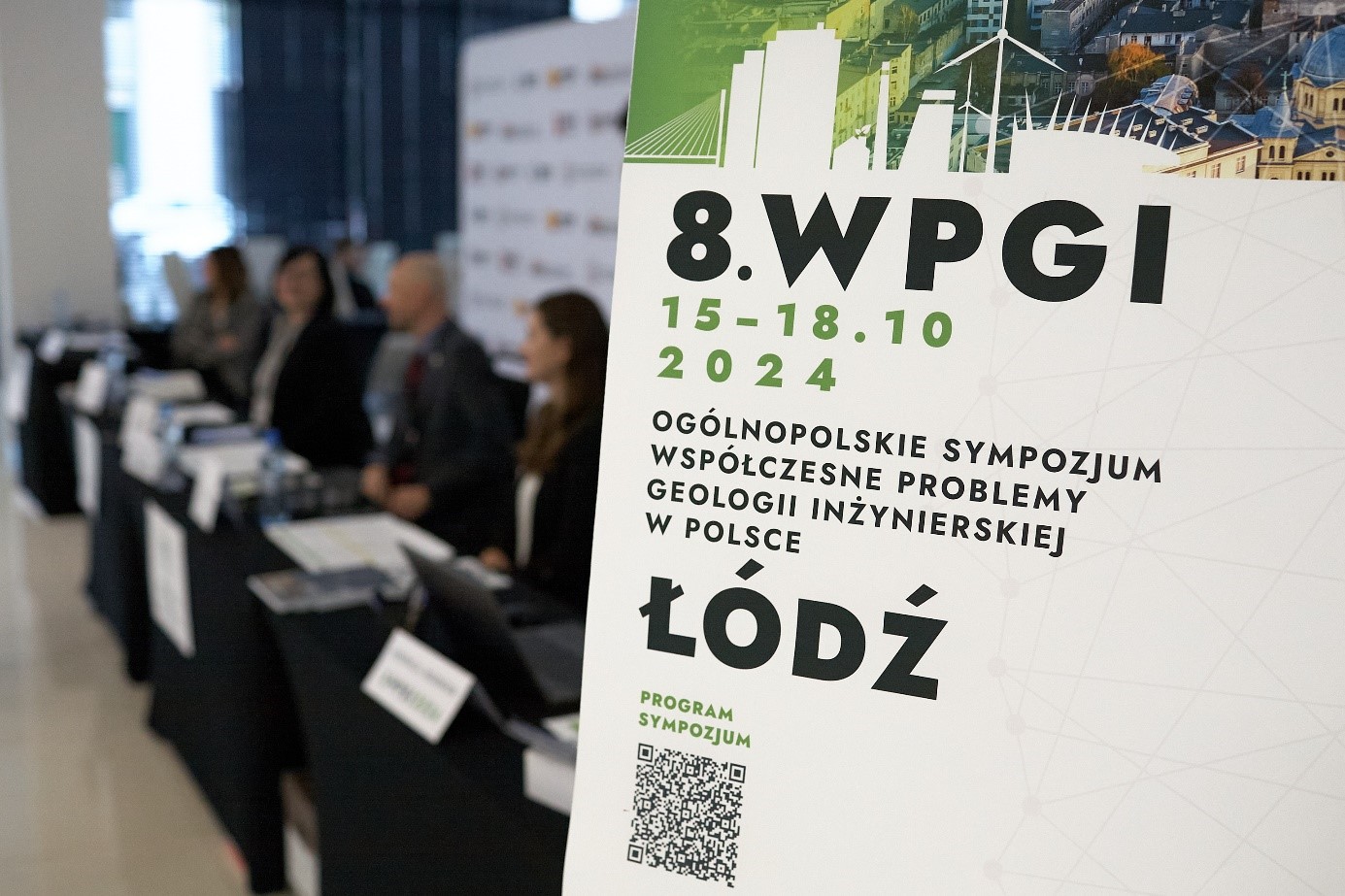 On 15-18 October 2024, the 8th Symposium ‘Recent Problems of Engineering Geology in Poland’ (8th WPGI) was held in Łódź, Poland. The event is organised every three years and the theme was the challenges of engineering geology in the face of energy transition, digitalisation and automation.
On 15-18 October 2024, the 8th Symposium ‘Recent Problems of Engineering Geology in Poland’ (8th WPGI) was held in Łódź, Poland. The event is organised every three years and the theme was the challenges of engineering geology in the face of energy transition, digitalisation and automation.
The symposium provides a platform for the exchange of experience and knowledge in the field of engineering geology, covering a broad spectrum of topics related to ground investigation, engineering geophysics, geotechnics, geological hazards and low-temperature and engineering geothermal.
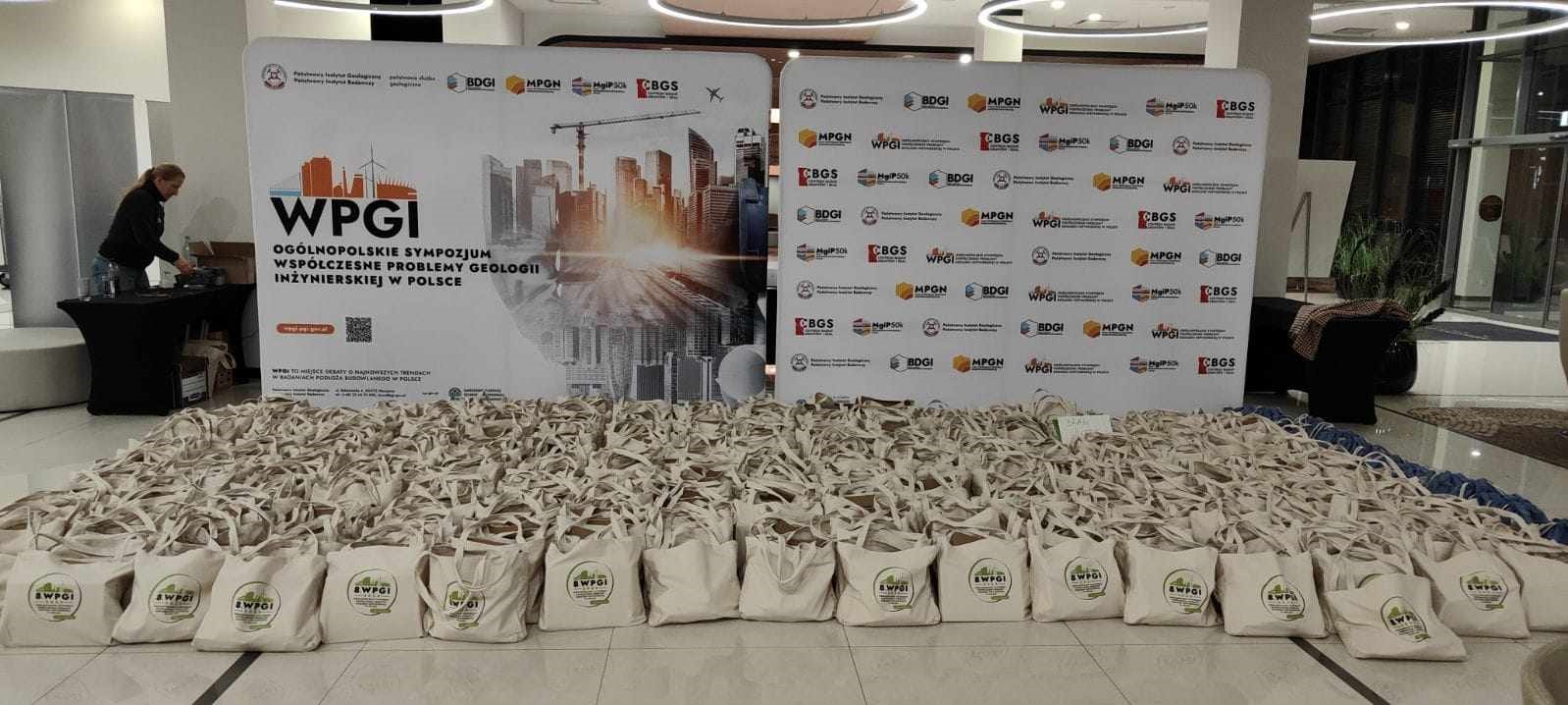
Preparations for the 8th WPGI
The WPGI Symposium has received the support of key institutions for the industry. The conference received honorary patronage from the Ministry of Climate and Environment, the Ministry of Industry, the General Directorate for Environmental Protection, the National Fund for Environmental Protection and Water Management and the General Directorate of National Roads and Motorways.
The event was attended by almost 400 people from 132 institutions. This year's Symposium was given an international profile. Expert knowledge was shared by representatives from the European Large Geotechnical Institutes Platform (ELGIP), the Association of Geological Surveys of Europe (EuroGeoSurveys) and the Urban Geology expert group.
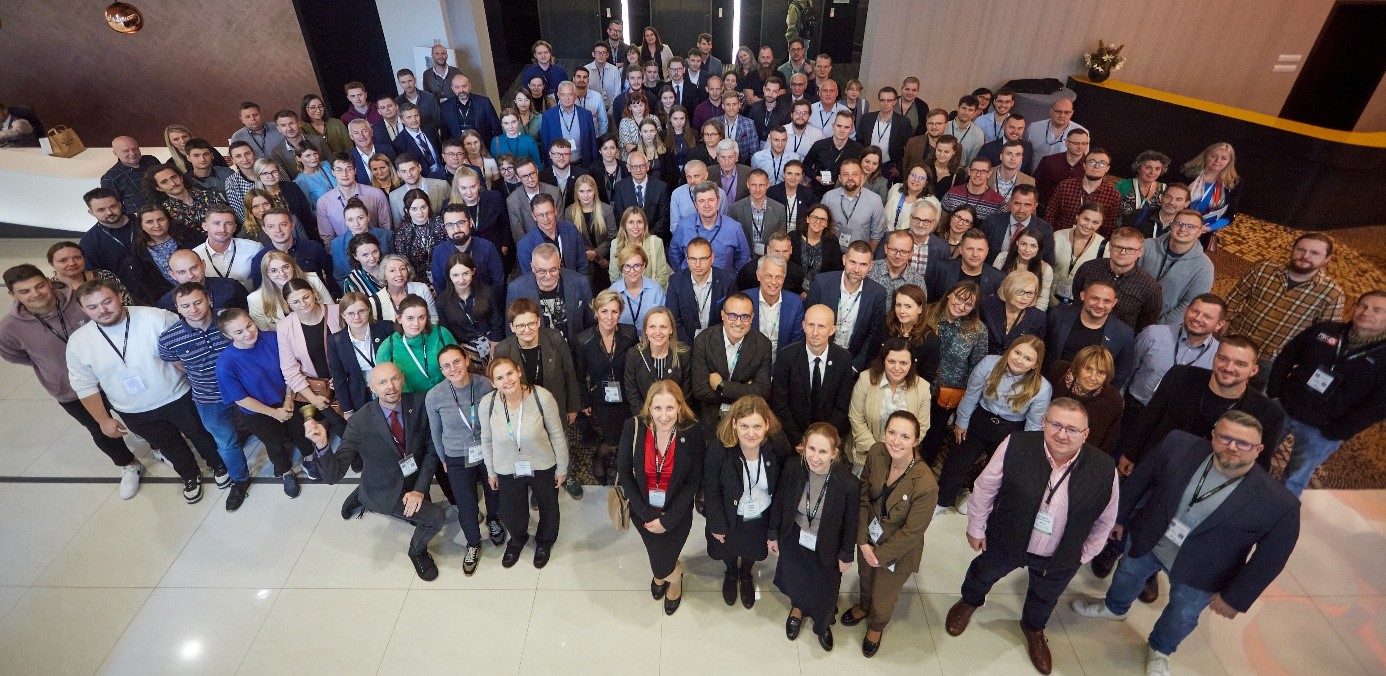
Participants in the 8th WPGI symposium
The several-day meeting was filled with workshops, sessions, talks and panel discussions. Participants listened to 83 papers and read nearly 40 posters.
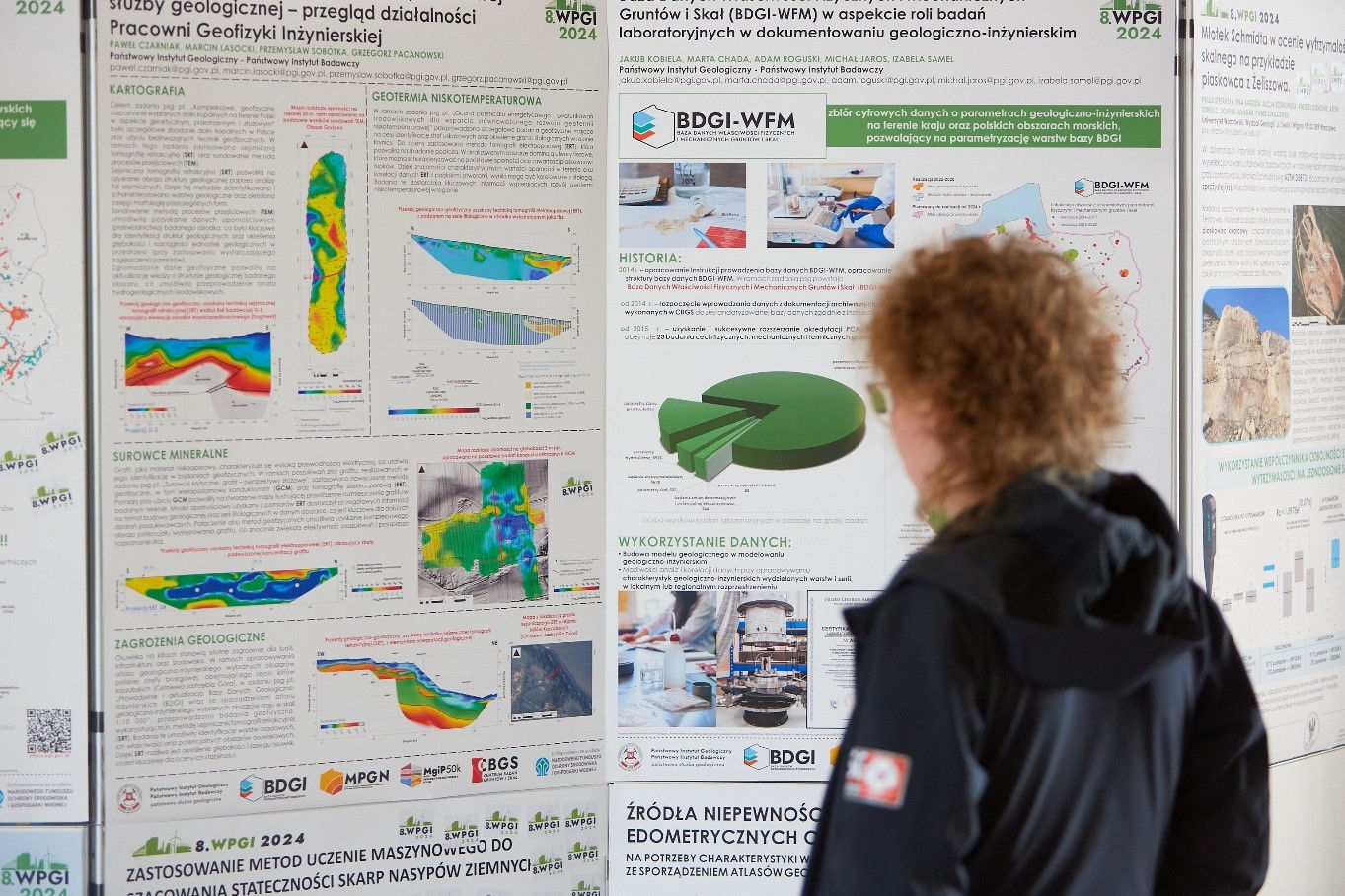
Presented posters
During the symposium's opening ceremony, participants were welcomed by Olimpia Kozłowska, PhD, Deputy Director for State Geological Survey at the Polish Geological Institute – National Research Institute. In her speech, she said:
- The role of engineering geology as an applied science is undisputed, just as undisputed is the growing role of geological and engineering research in the development of many branches of the economy and in the energy transition. Engineering geology is a major contributor to the rapidly developing shallow geothermal and other forms of renewable energy sources. The geological and engineering geological database of half a million geological boreholes maintained within the framework of the State Geological Survey is also an important starting point for further recognition. Such a large response to the Institute's invitation is a signal that our activities carried out within the framework of the State Geological Survey are very important.
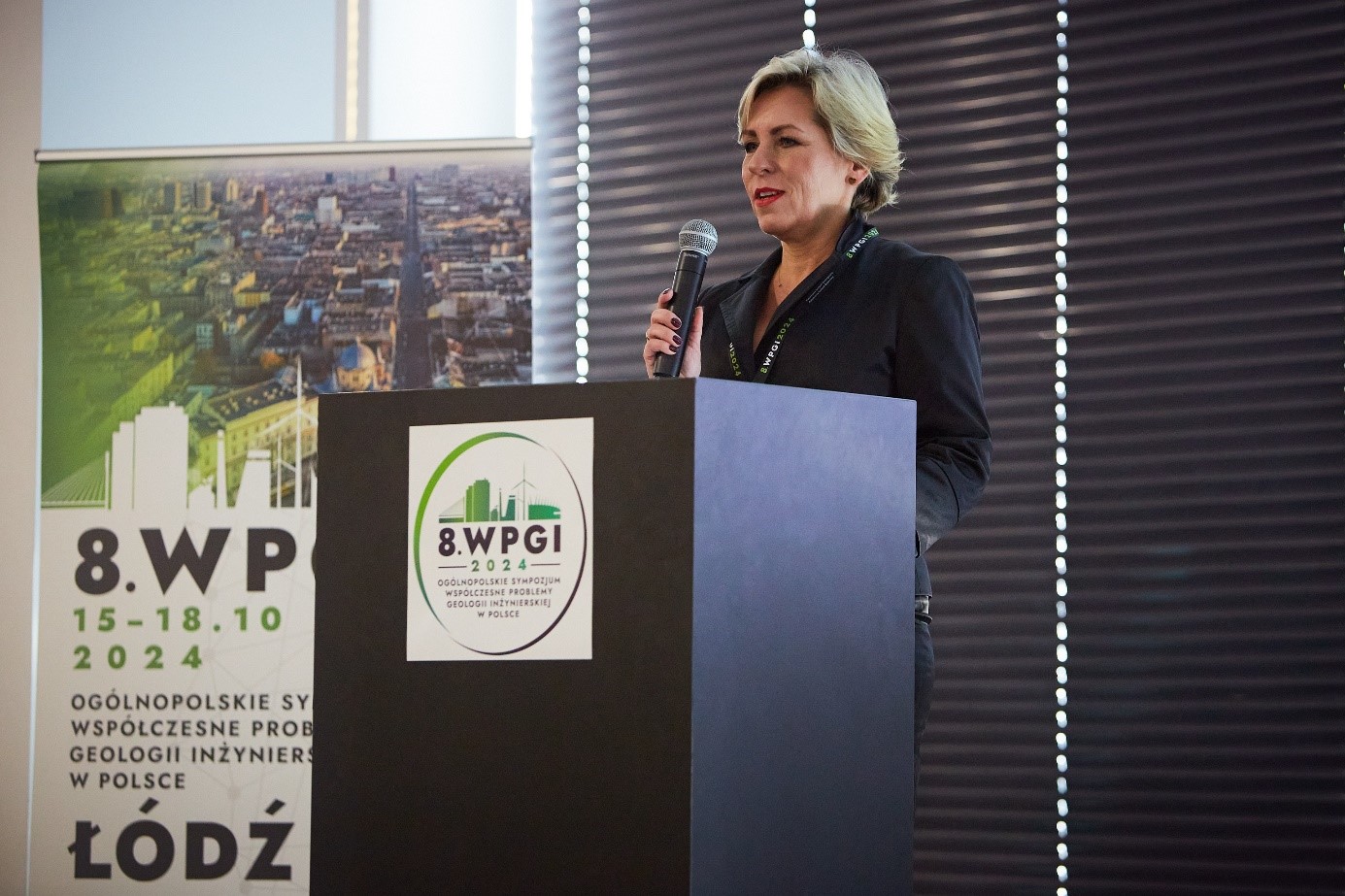
Speech by Olimpia Kozłowska, PhD, Deputy Director for the State Geological Survey at the PGI – NRI
The symposium was full of numerous paper panels where experts from various research centres and companies presented the latest research results and innovative solutions used in geological-engineering practice. The papers dealt with issues such as geological risk assessment, soil exploration, landslide stability and modelling of geomechanical processes.
There was also a workshop on the investigation of degraded sites and remediation methods, as well as the selection of a geotechnical sampling method with reference to EUROCODE. The workshop provided practical insights into modern survey tools and methods for analysing geotechnical data.
The second day saw the opening of the Symposium and the welcoming of guests. The first session was dedicated to environmental research and remediation. This session included papers on the effects of contamination on the physical and mechanical properties of soils and remediation of degraded and contaminated land.
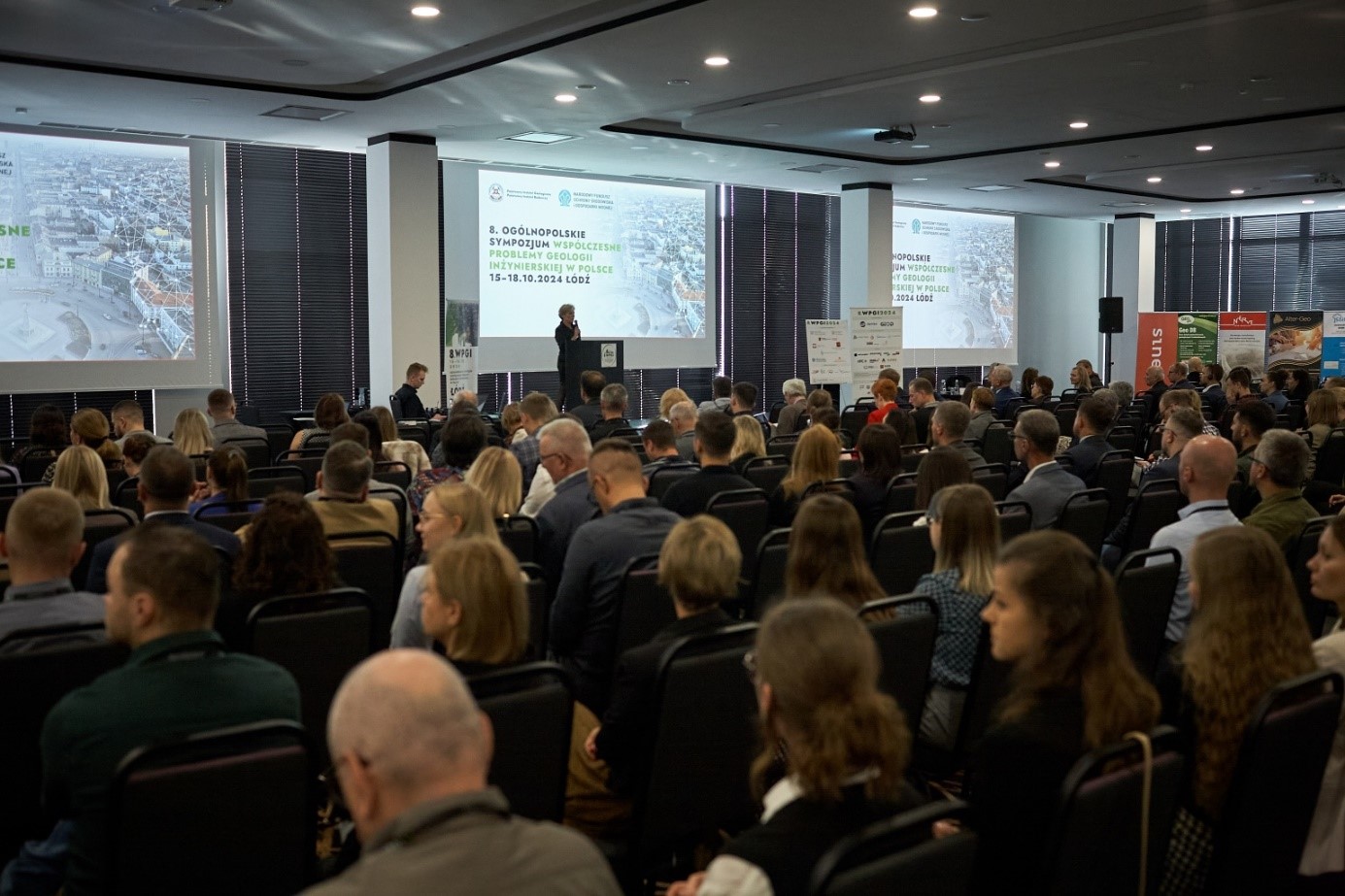
Opening of the WPGI Symposium
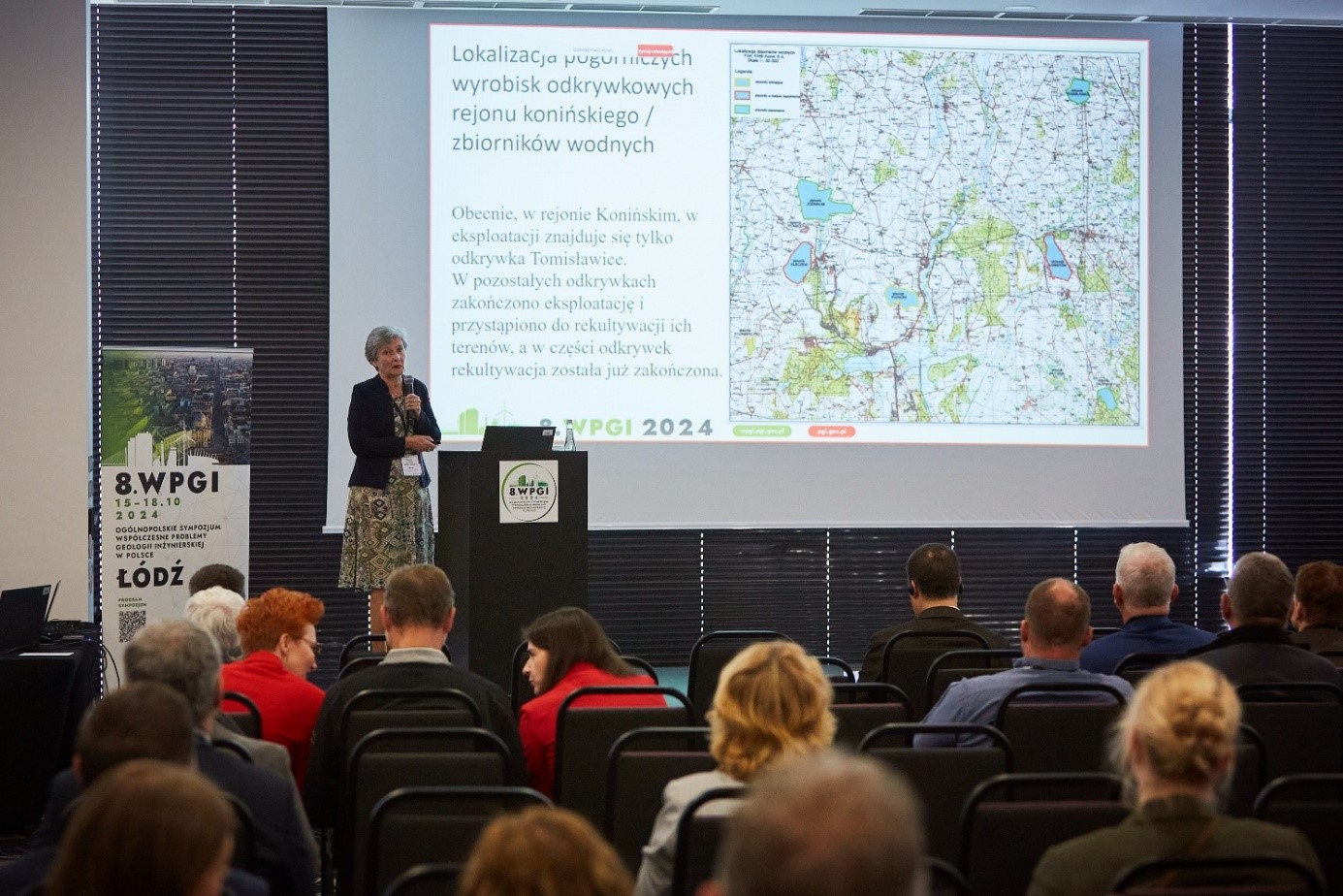
Session on environmental research and remediation
Session two and three were international workshops organised by the ELGIP association and EGS – EuroGeoSurveys ‘Urban Geology & Geotechnics’. The papers during this session were delivered in English with simultaneous translation into Polish. They dealt with climate change, geothermal, geotechnics, geoBIM tools, geoCIM, geological databases, and geohazards.
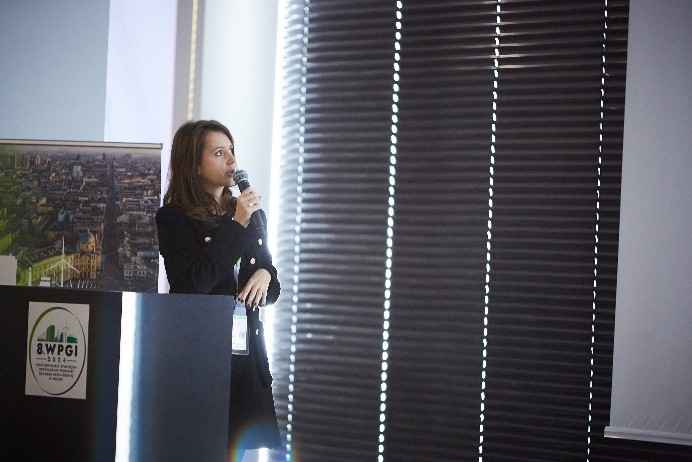
Workshops of ELGIP and EGS –- EuroGeoSurveys ‘Urban Geology & Geotechnics’
The presentation of Geo-radar's ‘Ground Penetrating Radar (GPR) 3D MALÅ MIRA Compact’, a modern solution for large-area GPR mapping, scheduled for the end of the first day, attracted a lot of interest.
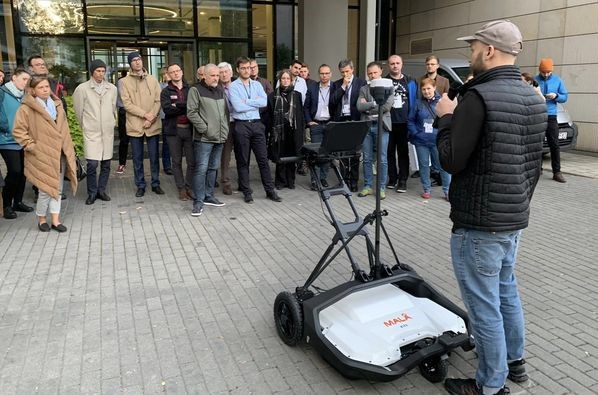
Presentation of the geo-radar system ‘GPR 3D MALÅ MIRA Compact’ by Geo-radar
Six thematic sessions were held on the third day, four of which were conducted in parallel. During the first four sessions, a large number of papers were delivered presenting the latest research results in engineering geology, covering the topics of low-temperature and engineering geothermal, geological hazards, engineering geophysics, geomechanical studies of rocks and physical-mechanical properties of soils.
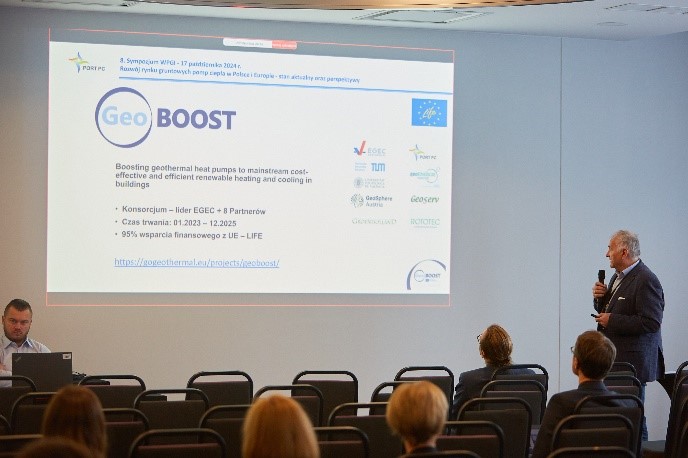
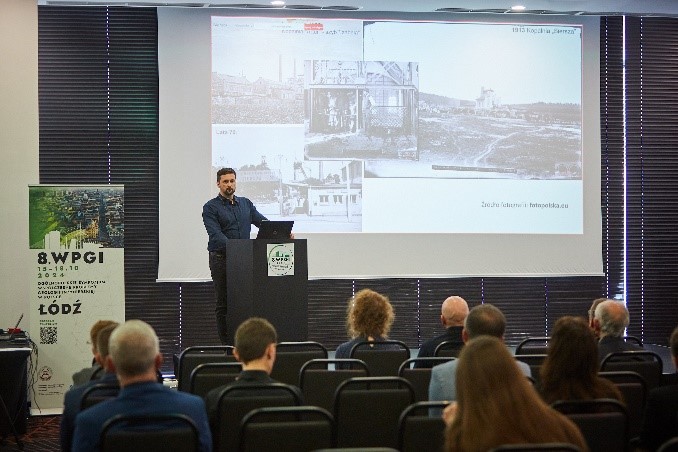
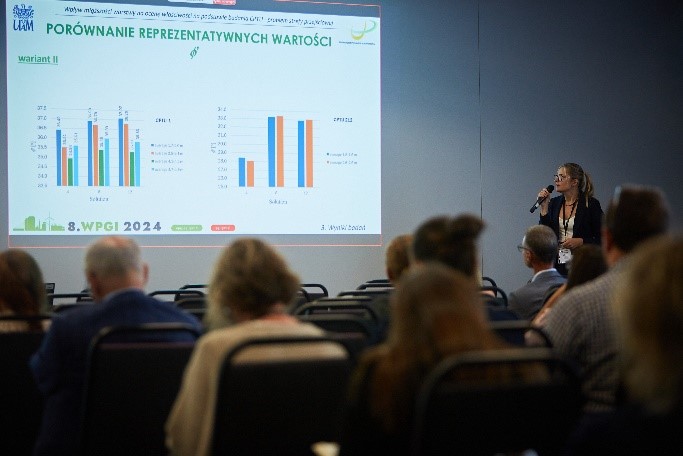
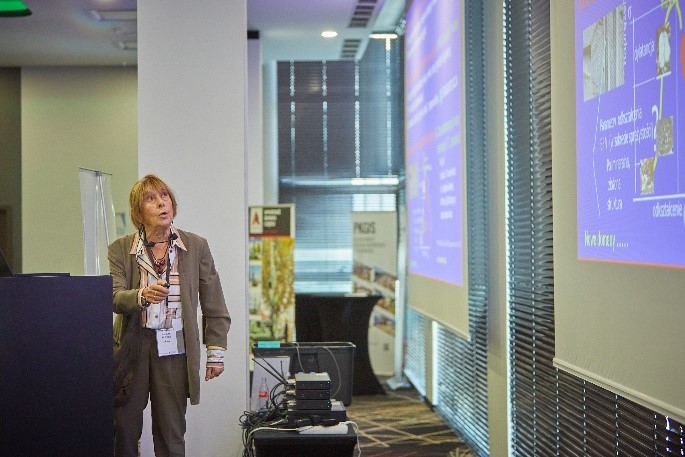
Substantive sessions on low-temperature geothermal and engineering geothermal, geological hazards, engineering geophysics, geomechanical testing of rocks and physical-mechanical properties of soils
The next two sessions were hosted by the Polish Association of Subsoil Investigation Contractors (PL – Polskie Zrzeszenie Wykonawców Badań Podłoża Gruntowego – PZWBPG). During the sessions, papers were delivered in the field of subsoil investigations. They were presented by representatives of the PZWBPG.
The concluding session was followed by a PZWBPG panel discussion entitled ‘What is the future of subsoil (subgrade) investigation in Poland, and do we have an influence on it?’, to which experts from universities and private companies were invited.
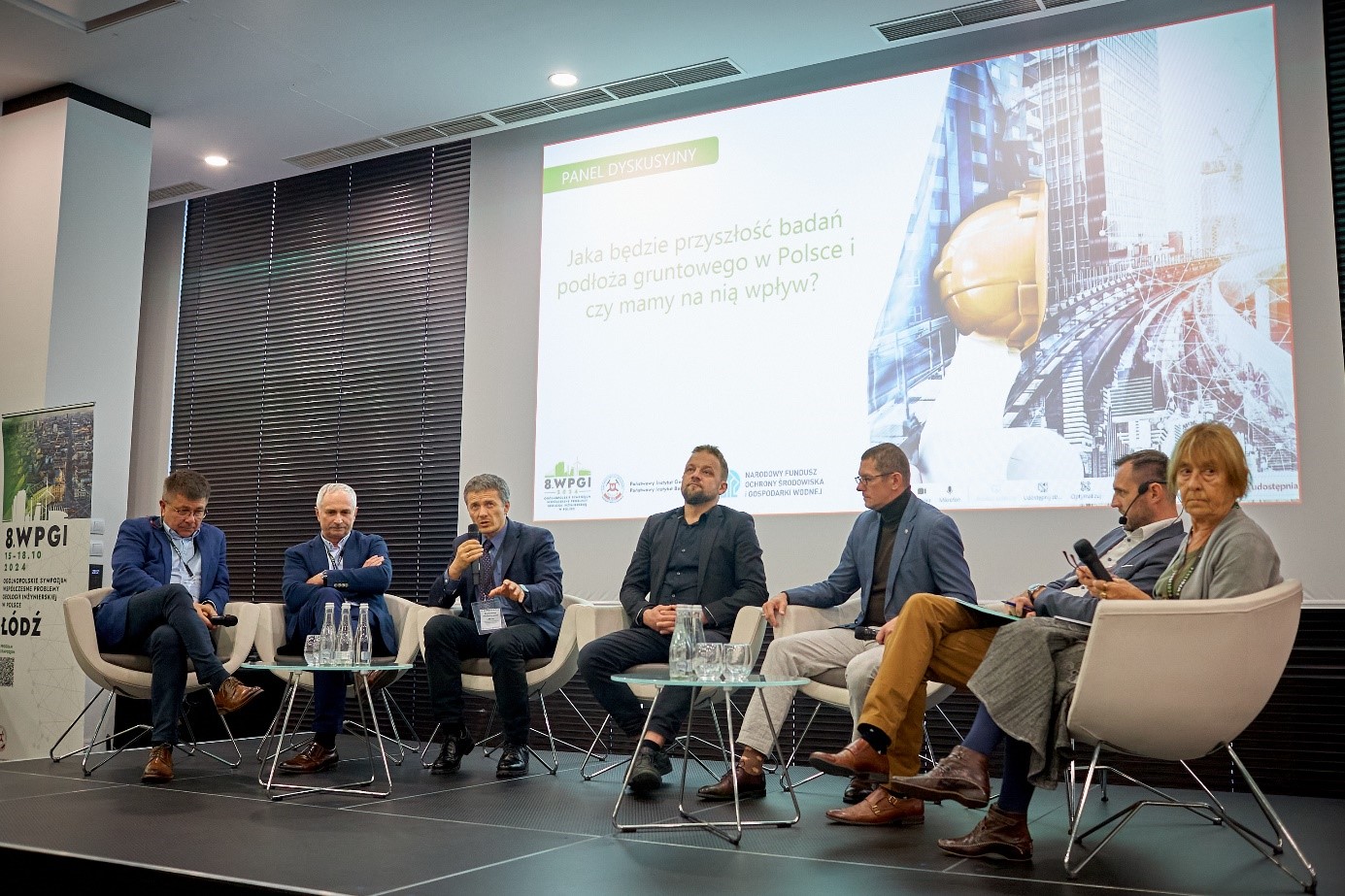
Panel discussion of the Polish Association of Subsoil Investigation Contractors (PZWBPG)
The last day of the 8th WPGI Symposium was filled with two sessions on law, documentation and investor-designer-geologist cooperation. The papers were delivered by representatives of geological administration, universities and research institutes and business including CPK (Central Transport Hub), PGE Baltica, Multiconsult and geological and design companies. The papers dealt with geological-engineering issues in relation to road investments, offshore wind farms, the Central Transport Hub, pumped storage hydro-power plants (PSH) and defence.
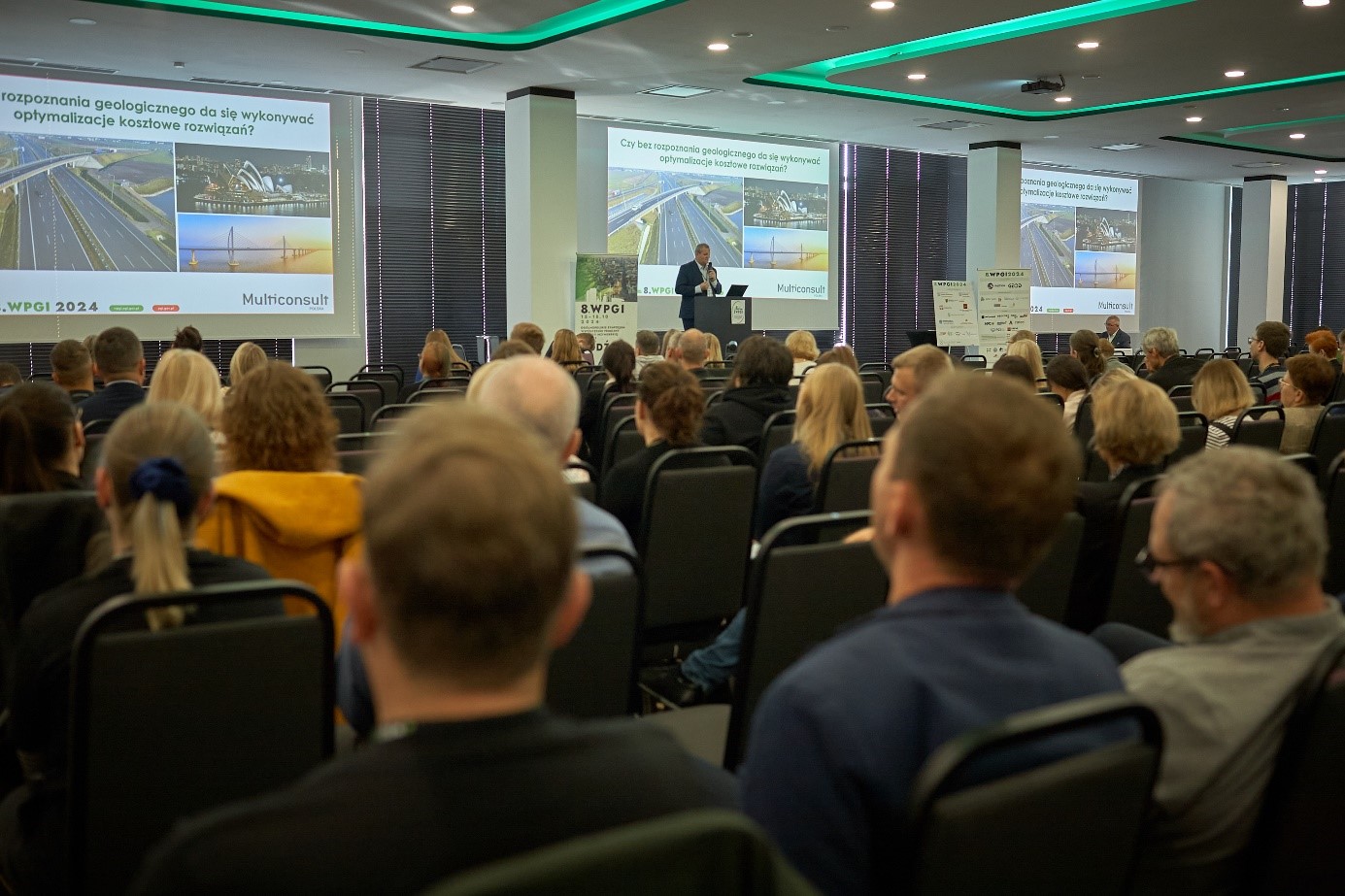
Session on Law – documentation, developer-designer-geologist cooperation
On the last day of the Symposium, representatives from the European Large Geotechnical Institutes Platform – ELGIP and from the Association of Geological Surveys of Europe – EuroGeoSurveys from the Urban Geology expert group took part in an excursion organised to the 'Kłodawa' Salt Mine.
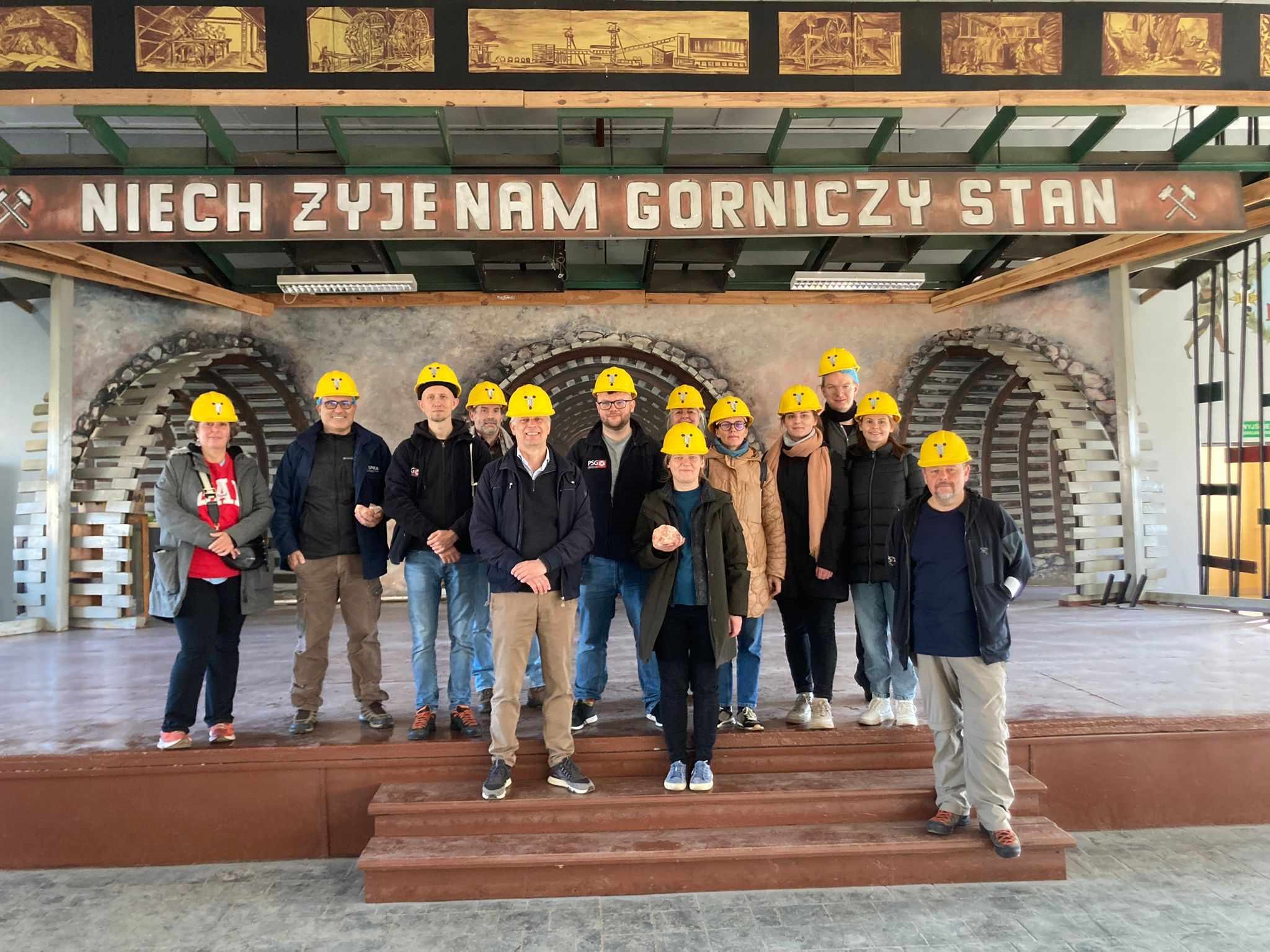
ELGIP and EGS representatives at the 'Kłodawa' Salt Mine
Throughout the Symposium, an exhibition stand was run by the organiser, the Polish Geological Institute – National Research Institute (PGI-NRI). It presented, among other things, the resources of geological and engineering databases.
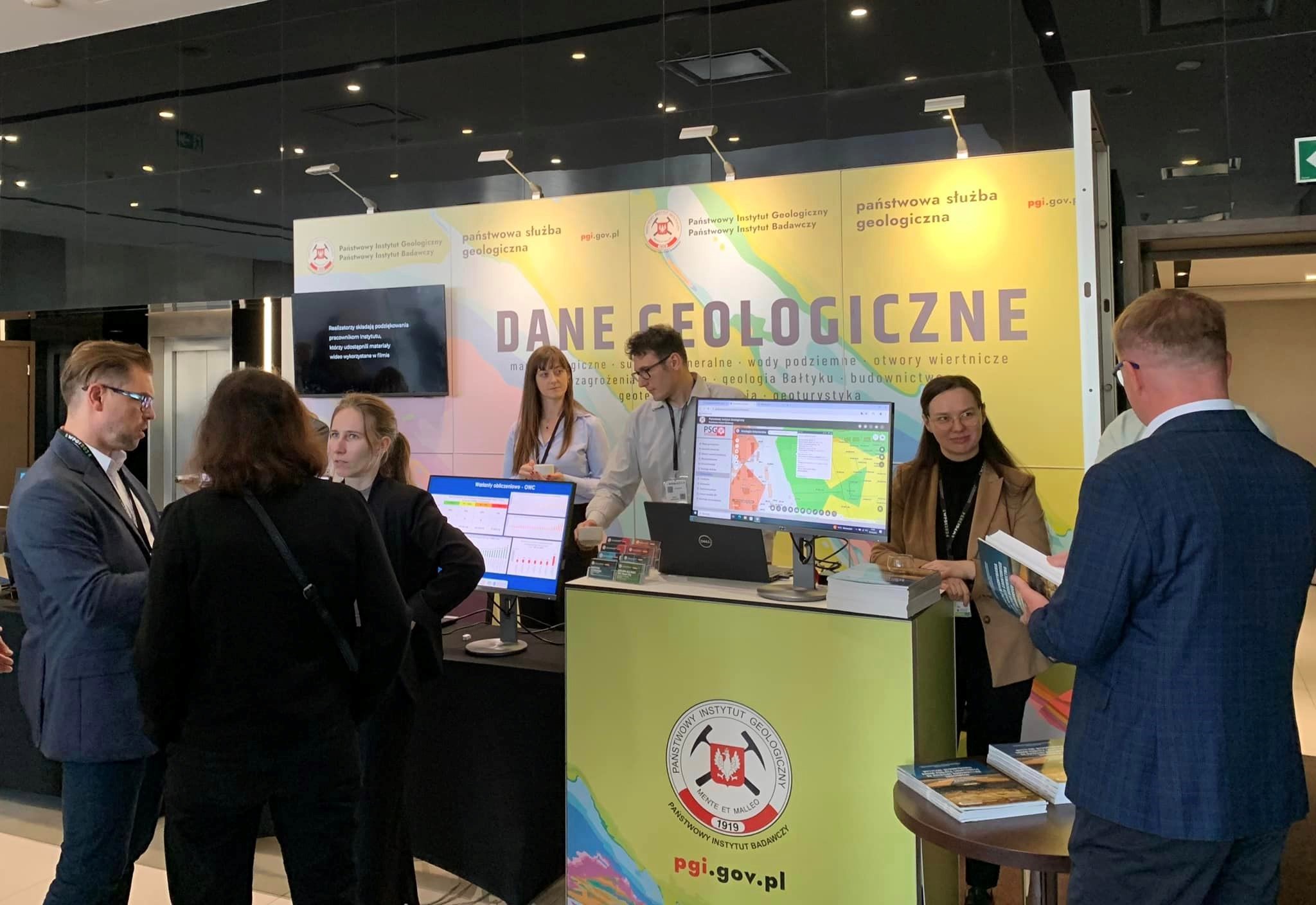
PGI-NRI stand
Six organisations including two international and four national ones provided substantive sponsorship of the symposium:
- the Association of Geological Surveys of Europe - EUROGEOSURVEYS,
- the European Large Geotechnical Institutes Platform – ELGIP,
- the Polish Association of Subsoil Investigation Contractors (PL – Polskie Zrzeszenie Wykonawców Badań Podłoża Gruntowego – PZWBPG),
- the Polish Committee for Engineering Geology and the Environment (PL – Polski Komitet Geologii Inżynierskiej i Środowiska),
- the Institute for Remediation of Contaminated Sites Association (PL – Stowarzyszenie Instytut Remediacji Terenów Zanieczyszczonych – SIRTZ),
- the Polish Organization of Heat Pump Technology Development (PL – Polska Organizacja Rozwoju Technologii Pomp Ciepła – PORT PC).
Organising this year's WPGI Symposium was a major organisational challenge, but also a financial one. The symposium was supported by 19 entrepreneurs and one association.
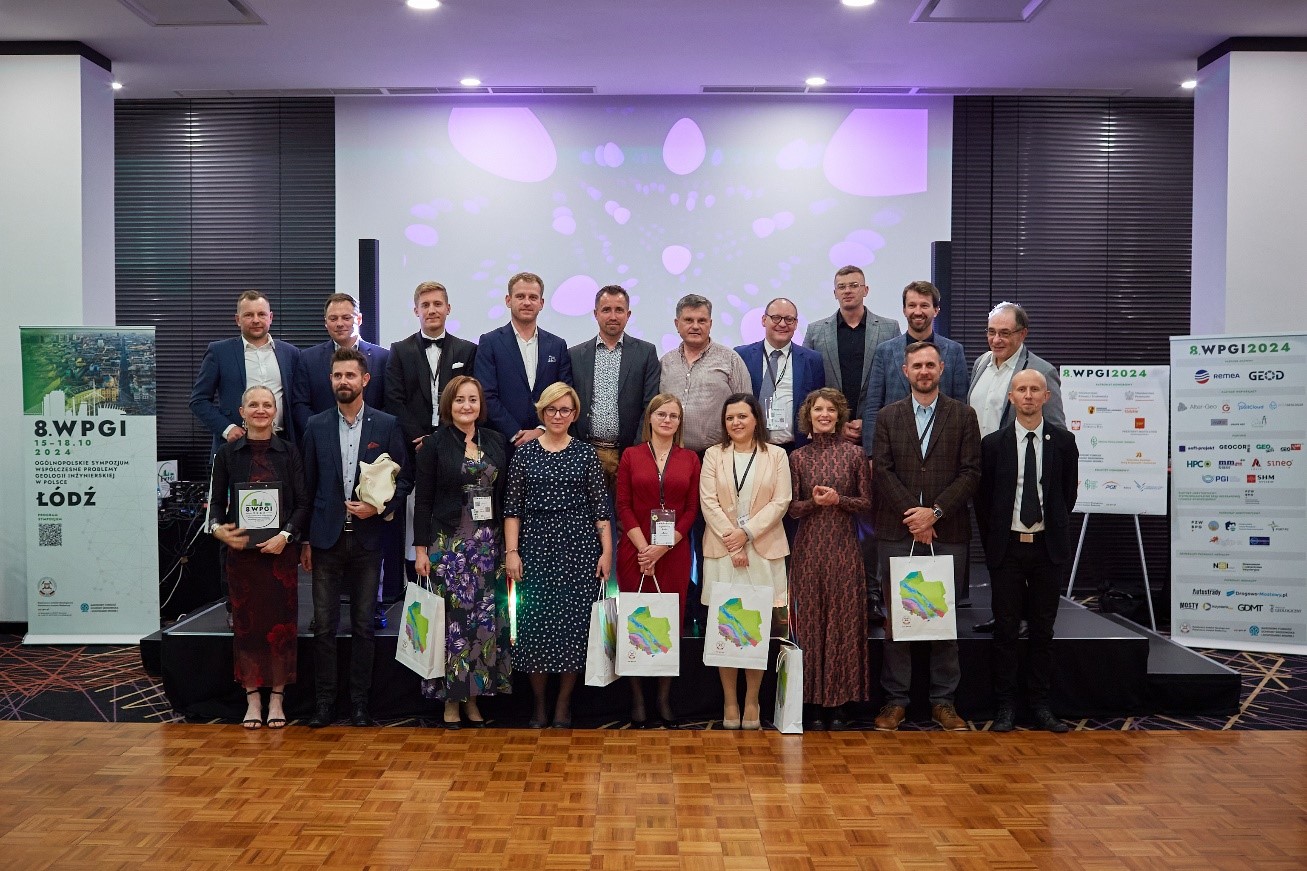
Partners of the 8th WPGI
The symposium was an excellent opportunity to establish international contacts and exchange experiences in the context of the challenges faced by modern engineering geology. After the event, many participants emphasised the high level of substantive and organisational quality of the symposium.
At the end of the event, representatives of the Department of Engineering Geology and Shallow Geothermics of the PGI-NRI – the organiser of the 8th WPGI – declared that the symposium will continue in the future, contributing to the further development of scientific, technical and business cooperation, both at the national and international level.
The organisers of the 8th WPGI Symposium would like to thank everyone for their participation and support. We will see you again in three years.
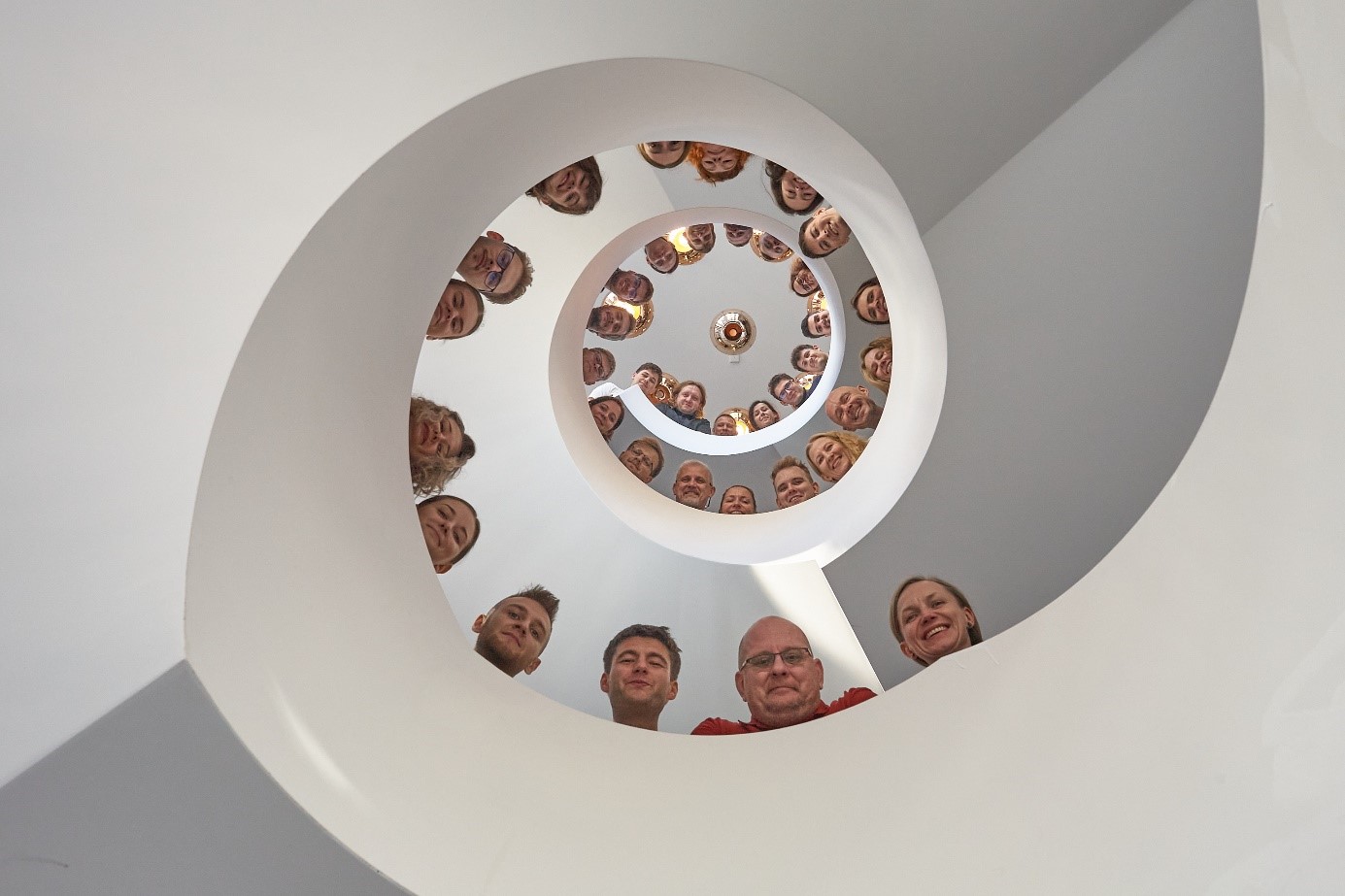
The team of the Department of Engineering Geology and Shallow Geothermics of the PGI-NRI
Link to the conference website: https://konferencje.pgi.gov.pl/pl/wpgi2024/
Link to video report: https://www.youtube.com/watch?v=cKNh43nNNLM
Link to recordings: https://konferencje.pgi.gov.pl/pl/wpgi2024/retransmisja.html
Link to the presentation: https://konferencje.pgi.gov.pl/pl/wpgi2024/prezentacje.html
Link to posters: https://konferencje.pgi.gov.pl/pl/wpgi2024/postery.html
Link to abstract books: https://konferencje.pgi.gov.pl/pl/wpgi2024/zeszyt-abstraktow.html
Photo gallery: https://konferencje.pgi.gov.pl/pl/wpgi2024/galeria-zdjec.html
Text: Artur Baranowski, Marta Chada, Edyta Majer
Photos: Marcin Kułak, Organizers














 PGI-NRI offer
PGI-NRI offer Mineral resources of Poland
Mineral resources of Poland  Oil and Gas in Poland
Oil and Gas in Poland 



 Subscribe to RSS Feed
Subscribe to RSS Feed